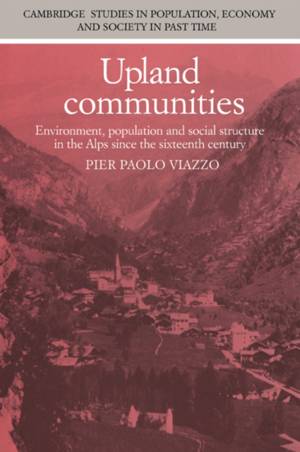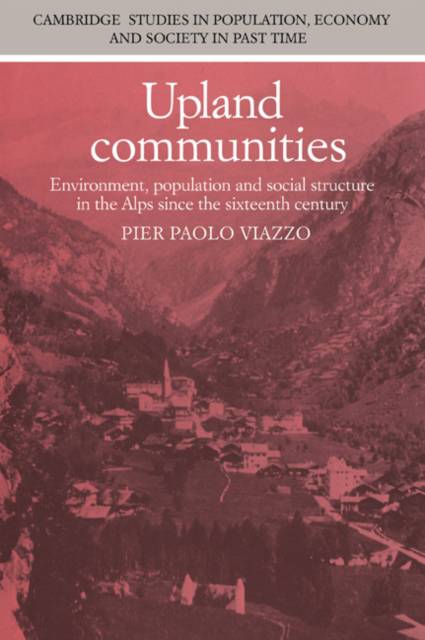
- Afhalen na 1 uur in een winkel met voorraad
- Gratis thuislevering in België vanaf € 30
- Ruim aanbod met 7 miljoen producten
- Afhalen na 1 uur in een winkel met voorraad
- Gratis thuislevering in België vanaf € 30
- Ruim aanbod met 7 miljoen producten
Zoeken
Upland Communities
Environment, Population and Social Structure in the Alps Since the Sixteenth Century
Pier Paolo Viazzo
€ 82,45
+ 164 punten
Uitvoering
Omschrijving
This book follows the social, economic and demographic transformations of the Alpine area from the late Middle Ages. Its aim is to reassess the image of the upland community which emerges from the work of historians, geographers and social anthropologists. The book therefore deals at length with such problems as the causes and consequences of emigration and patterns of marriage and inheritance in favouring or hampering the adjustments of local populations to changing economic or ecological circumstances, and tackles the vexed question of the relative importance of cultural and environmental factors in shaping family forms and community structures. Although its foundation lies in a long period of anthropological fieldwork conducted in an Alpine community, Upland Communities relies on the methods and conceptual tools of historical demography. Combined with a long-term historical perspective, its broad comparative approach unveils an unexpected diversity in regional and spatial demographic patterns and questions a number of deep-rooted but ultimately misleading notions concerning mountain society and its alleged backwardness in the past.
Specificaties
Betrokkenen
- Auteur(s):
- Uitgeverij:
Inhoud
- Aantal bladzijden:
- 344
- Taal:
- Engels
- Reeks:
- Reeksnummer:
- nr. 8
Eigenschappen
- Productcode (EAN):
- 9780521034166
- Verschijningsdatum:
- 14/12/2006
- Uitvoering:
- Paperback
- Formaat:
- Trade paperback (VS)
- Afmetingen:
- 152 mm x 229 mm
- Gewicht:
- 503 g

Alleen bij Standaard Boekhandel
+ 164 punten op je klantenkaart van Standaard Boekhandel
Beoordelingen
We publiceren alleen reviews die voldoen aan de voorwaarden voor reviews. Bekijk onze voorwaarden voor reviews.











